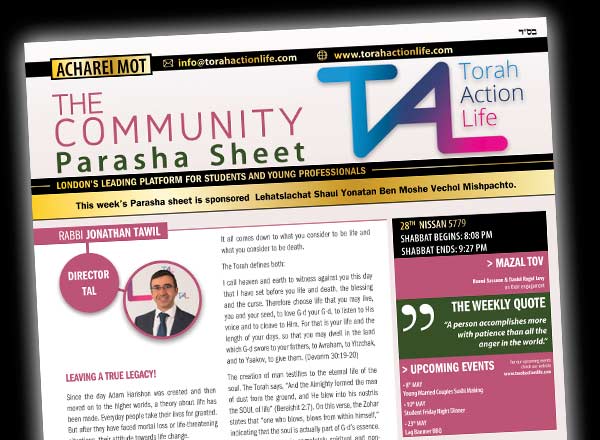
Sometimes when we sin we tell ourselves “I am never going to do this again” It might take a few weeks, days or for some, hours! But here we are doing the same thing again and berating ourselves for being weak. The question is therefore twofold; One: does teshuva help in such a case? Two: what can we do to change it?
Regarding the first question there is an interesting Rambam often quoted. The Rambam in ch 2 of Hilchos Teshuva writes “what is a complete teshuva? This is if it comes to a person the same sin that he has done before and one is able to sin again but refrains from doing so. Not because he is scared or not able to, but because of his teshuva. This is a complete teshuva”. Some learn from this Rambam that teshuva only works if we never return to the sin, otherwise it shows we are not sincere. Others say that the Rambam only means a complete teshuva, but it nevertheless is counted as teshuvah. However, Rabbeinu Yona in his Sefer ‘Gates of repentance’ seems to be more lenient. The Mabit in his sefer ‘Beit HoElokim’ is more explicit and writes that as long as any teshuva is sincere it is accepted even if the person goes back to the sin. We can take from here, that even though we might go back to the sin, any teshuvah we do is important, as long as it sincere.
The other question we asked was – what can we do about it? In order to answer this question, we have to know that as part of human nature we find change very hard. The Vilna Goan once said that it is easier to learn the whole of Shas than to change one middah. Things are stronger at the beginning, but our motivation fades over time and we return to our habits.
So how can we make lasting change? I want to give some practical pointers to deal with recurring sins.
- Make achievable goals – While its commendable to learn 18 hours a day, say tikken chazos and still make it up for neitz, it’s not so practical. Try thinking about an achievable goal and then lower it and then go back and lower it again. We generally try to take on too much too soon. It is better to make small and permanent steps.
- Learn Torah – The Gemara in Sota says that Torah protects a person from sin. The Gemara tells us that this is only during the time we are actually studying and not after. Yet R’ Elyah Lopian writes in Lev Elyahu that mussar is different and can protect us even after we have closed the sefer.
- Sustainability – We can’t make a change and not think about sustaining it. If we do, then we are setting ourselves up for failure. We need to think about practical ways we can keep from reverting back to our old behaviour. If we put ourselves in the same situation again we are likely to fail whereas if we can put our own safeguards in place, we are more likely to succeed.
- Talk it through with someone – That might be a friend, spouse, Rabbi or even a therapist. Talking it through with someone can make it easier to think of practical advice as well as get a fresh perspective on it.
- Think what we get from it – Finally, when we have tried numerous times to try and stop doing something and have not been successful, it might be time to start thinking about what the sin does to us on an internal level. Sometimes the sin can fill some void that we have inside. For example, maybe when we speak Lashon Hara we feel that other people respect us and value us. This is based on an internal lack of self-worth and self-confidence. If we were to feel better about ourselves and deal with the internal issue we might find that it becomes easier to deal with the behavior.
May we all approach Rosh Hashanah with a sincere teshuvah.







